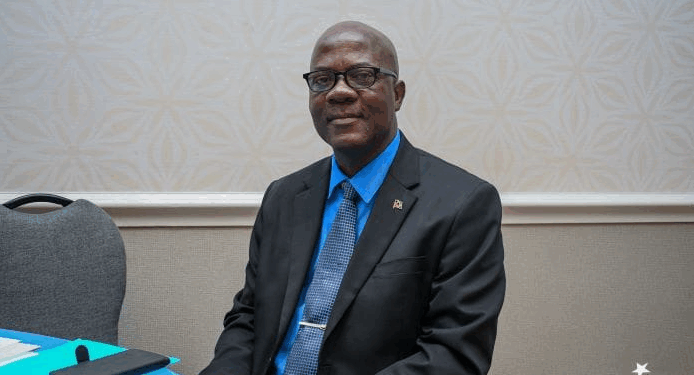Basseterre, Saint Kitts, June 04, 2025 (SKNIS): Permanent Secretary (PS) in the Ministry of National Security, Glenroy Blanchette, is currently representing the Federation of Saint Kitts and Nevis at the Eighth Session of the United Nations Global Platform for Disaster Risk Reduction (GP2025) in Geneva, Switzerland. The international gathering, organised by the United Nations Office for Disaster Risk Reduction (UNDRR) from June 02-06, brings together leaders and stakeholders from around the world to assess progress and share strategies to reduce the risk and impact of disasters.
PS Blanchette addressed the high-level Multi-Stakeholder Plenary on Regional Progress in Implementing the Sendai Framework and its Midterm Review Recommendations on Wednesday, June 04, 2025. In his remarks, delivered on behalf of the Prime Minister and Minister of National Security, the Honourable Dr. Terrance Drew, he acknowledged the decade milestone since the adoption of the Sendai Framework and emphasised the urgency of meeting its targets with only five years remaining until 2030.
“Time is not on our side,” PS Blanchette stated. “For Saint Kitts and Nevis, and for the wider Caribbean and Americas, this is a critical moment for reflection, recommitment, and renewed momentum.”
Highlighting recent progress, Mr. Blanchette referenced the successful hosting of the Sixth High-Level Meeting of Ministers on the Implementation of the Sendai Framework, held in Saint Kitts and Nevis in December 2024. That event saw participation from 27 countries and three (3) overseas territories, with the Caribbean Disaster Emergency Management Agency (CDEMA) serving as co-chair. The outcomes of the meeting have already begun to shape regional policy and practice.
Mr. Blanchette shared that the Caribbean region has made notable progress in three key areas: the establishment of a regional monitoring and accountability mechanism through a voluntary commission of 16 countries, improvements in multi-hazard early warning systems, and greater integration of disaster risk reduction with the Sustainable Development Goals and the Paris Agreement. These actions, he said, are “not abstract innovations—they are lifesaving instruments.”
Despite these advances, challenges persist, particularly in the area of disaster risk financing.
“Risk-informed investment is not keeping pace with our growing needs,” the permanent secretary warned, adding that access to financing for local governments remains a serious barrier.
Looking ahead, he outlined six priority areas for advancing resilience in the region. These are: improved risk knowledge and data use, universal access to early warning systems, investment in resilient infrastructure, financial readiness for recovery, empowering local governments, and bolstering the resilience of Small Island Developing States (SIDS).
He also offered three transformative lessons from the region’s experience. These include the implementation of the Caribbean Disaster Emergency Management Agency’s Comprehensive Disaster Management (CDM) Strategy and the Antigua and Barbuda Agenda for SIDS; cross-sectoral financial partnerships to unlock disaster financing; and a whole-of-society approach that elevates the voices of women, youth, indigenous communities, and persons with disabilities.
“In reaffirming our commitment to the Sendai Framework, we call on all regions to match urgency with innovation. Let us act decisively, invest wisely, and collaborate boldly to protect lives, livelihoods, and development gains across our region and beyond,” PS Blanchette concluded.
The participation of Saint Kitts and Nevis at this global platform underscores the nation’s leadership in disaster risk reduction and its commitment to safeguarding its people and future in the face of an increasingly uncertain climate landscape.
-30-









